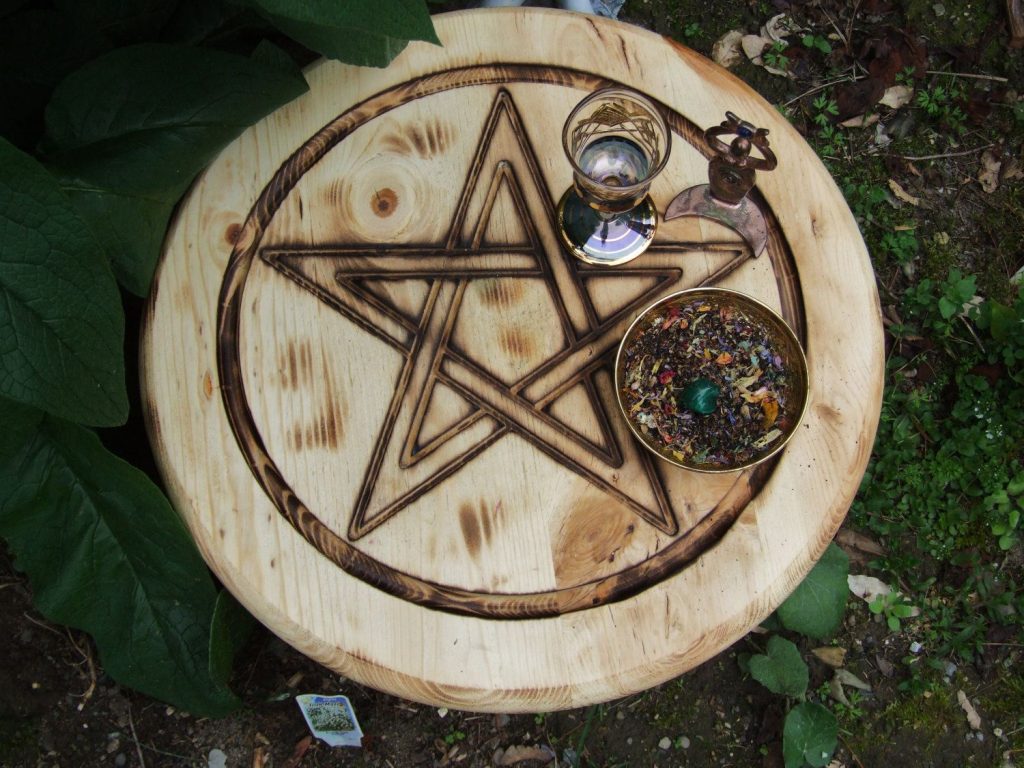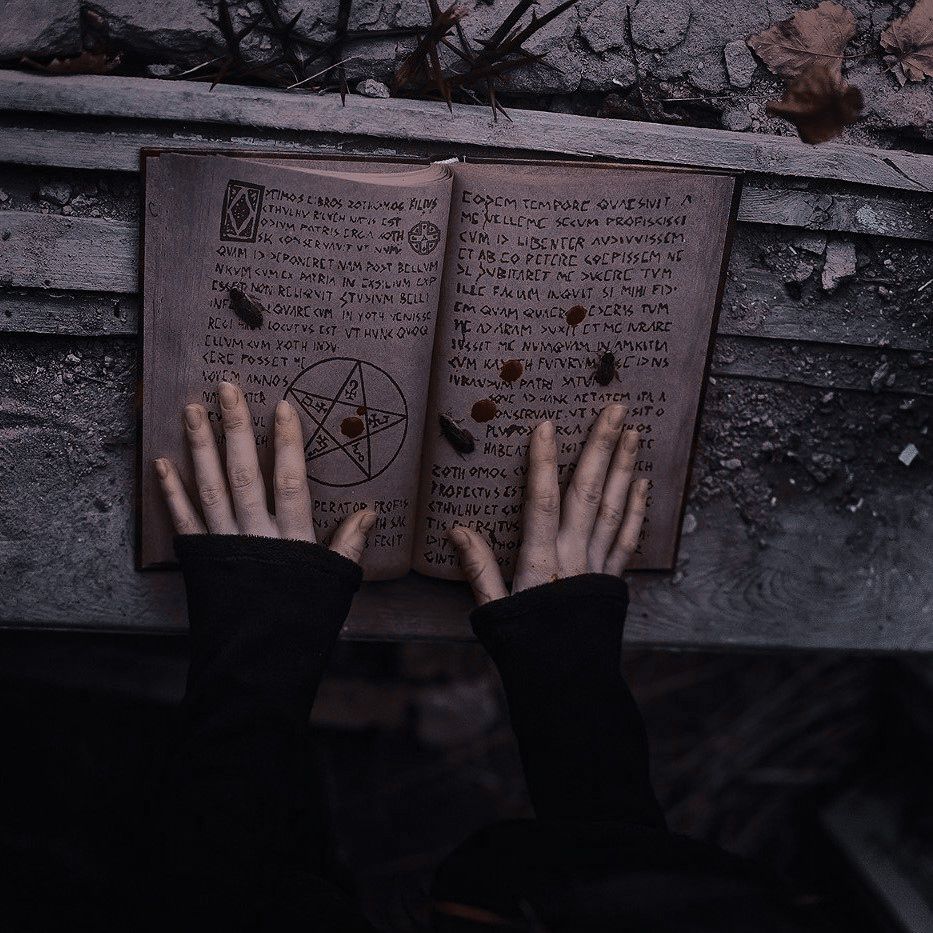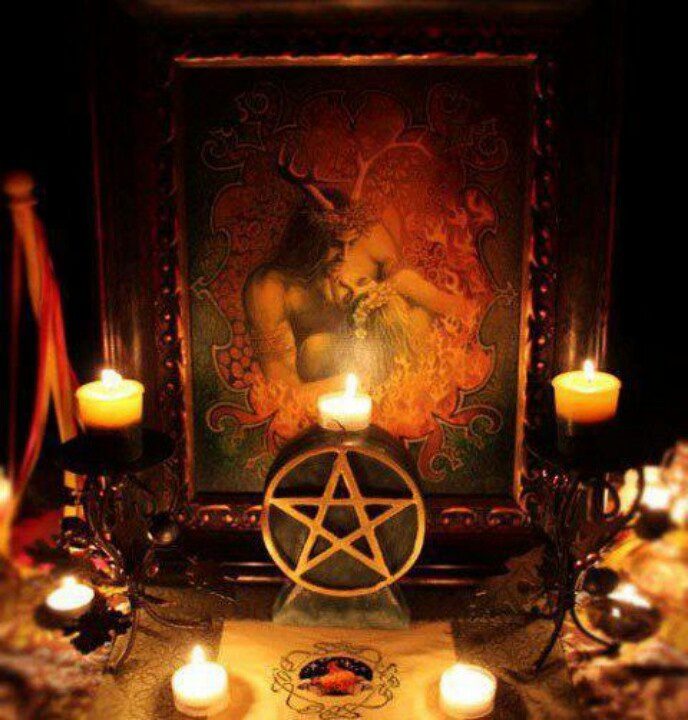Central to the Wiccan ethical framework is the Wiccan Rede, a short but profound statement that guides the moral conduct of its adherents. “An it harm none, do what ye will” serves as both a simple mantra and a deep philosophy that encourages Wiccans to live harmoniously with the world around them. In this article, we will explore the origins, interpretation, and significance of the Wiccan Rede.
The Origins of the Wiccan Rede
The origins of the Wiccan Rede are somewhat elusive, and it can be challenging to pinpoint a specific moment or individual responsible for its creation. Instead, it evolved gradually within the Wiccan and broader pagan communities over time. Here are some important points regarding its origins:
- Ancient and Folkloric Influences: The ethical principle expressed in the Wiccan Rede has roots in older pagan traditions and folklore. Many indigenous and pre-Christian belief systems emphasized living in harmony with nature and not causing harm to others. These concepts likely contributed to the development of the Rede within modern Wicca.
- Aleister Crowley’s Influence: As mentioned earlier, Aleister Crowley, a prominent figure in Western occultism, had a notable influence on the formulation of the Wiccan Rede. His statement, “Do what thou wilt shall be the whole of the Law. Love is the law, love under will,” shares similarities with the Rede’s core message. While Gerald Gardner, one of the founders of modern Wicca, didn’t directly borrow from Crowley, his familiarity with Crowley’s work and ideas may have indirectly shaped the Wiccan Rede.
- Gerald Gardner and Doreen Valiente: Gerald Gardner, often referred to as the “Father of Modern Witchcraft,” played a pivotal role in popularizing Wicca in the mid-20th century. While he didn’t create the Rede, he is known for incorporating it into Wiccan practice. Doreen Valiente, a prominent figure in the early Wiccan movement and one of Gardner’s high priestesses, is often credited with refining the wording of the Rede. She was responsible for helping to shape many Wiccan rituals and texts, and her contributions to the Rede are highly regarded.
- Oral Tradition: Much of early Wiccan teaching and wisdom were passed down through oral tradition. This means that the Rede, like many other aspects of Wiccan practice, was communicated verbally within covens and circles rather than being recorded in written form. As a result, its exact origins may have been less documented and more reliant on the experiences and interpretations of practitioners.
- Evolution and Adaptation: The Wiccan Rede has continued to evolve and adapt as Wicca itself has grown and diversified. Different traditions and individual practitioners may interpret and apply it in slightly different ways, emphasizing certain aspects over others, depending on their specific beliefs and practices.
In conclusion, the Wiccan Rede, “An it harm none, do what ye will,” represents a contemporary formulation of ancient ethical principles and influences from figures like Aleister Crowley, Gerald Gardner, and Doreen Valiente. Its exact origins may remain somewhat mysterious, but its enduring significance within the Wiccan and broader pagan communities is a testament to its ethical and spiritual importance.


The Wiccan Rede
Bide the Wiccan Laws we must In Perfect Love and Perfect Trust.
Live and let live. Fairly take and fairly give.
Cast the Circle thrice about to keep the evil spirits out.
To bind the spell every time let the spell be spake in rhyme.
Soft of eye and light of touch, Speak little, listen much.
Deosil go by the waxing moon, chanting out the Witches’ Rune.
Widdershins go by the waning moon, chanting out the baneful rune.
When the Lady’s moon is new, kiss the hand to her, times two.
When the moon rides at her peak, then your hearts desire seek.
Heed the North wind’s mighty gale, lock the door and drop the sail.
When the wind comes from the South, love will kiss thee on the mouth.
When the wind blows from the West, departed souls will have no rest.
When the wind blows from the East, expect the new and set the feast.
Nine woods in the cauldron go, burn them fast and burn them slow.
Elder be the Lady’s tree, burn it not or cursed you’ll be.
When the Wheel begins to turn, let the Beltane fires burn.
When the Wheel has turned to Yule, light the log and the Horned One rules.
Heed ye flower, Bush and Tree, by the Lady, blessed be.
Where the rippling waters go, cast a stone and truth you’ll know.
When ye have a true need, hearken not to others’ greed.
With a fool no season spend, lest ye be counted as his friend.
Merry meet and merry part, bright the cheeks and warm the heart.
Mind the Threefold Law you should, three times bad and three times good.
When misfortune is enow, wear the blue star on thy brow.
True in love ever be, lest thy lover’s false to thee.
Eight words the Wiccan Rede fulfill: An ye harm none, do what ye will.
Interpreting the Wiccan Rede
Interpreting the Wiccan Rede, “An it harm none, do what ye will,” is a multifaceted endeavor, as it offers room for individual interpretation while also adhering to some key principles. Here’s a deeper look at how practitioners interpret this fundamental tenet:
- Harm None: This is often the first and most emphasized part of the Rede. Interpreting “harm none” means adherents strive to avoid causing harm, suffering, or negative consequences to others, themselves, and the natural world. It extends to all living beings, including animals and the environment. This principle encourages a lifestyle of non-violence, empathy, and conscientious decision-making.
- Do What Ye Will: The second part of the Rede, “do what ye will,” conveys a sense of personal freedom and autonomy. It encourages individuals to follow their true will, which is often seen as their unique life purpose or destiny. This interpretation doesn’t promote hedonism or recklessness but underscores responsible choices aligned with one’s authentic self. It emphasizes the importance of self-discovery and self-actualization.
- Balancing Intent and Outcome: Sometimes, despite one’s best intentions, harm can be unintentionally caused. In such cases, the interpretation of the Rede encourages individuals to weigh their intent against the actual outcome. If harm was genuinely unintended and efforts are made to mitigate or rectify it, this aligns with the ethical spirit of the Rede.
- Love as a Guiding Force: Love plays a central role in the interpretation of the Rede. It is not just about avoiding harm but actively promoting love, compassion, and kindness in one’s interactions with others and the natural world. Love is the driving force that helps practitioners make ethical choices and maintain harmony.
- Ethical Decision-Making: Interpreting the Rede involves constant ethical deliberation. Practitioners are encouraged to think critically about the potential consequences of their actions and decisions. It promotes mindfulness and ethical awareness in everyday life.
- Respect for Diversity: The Rede encourages respect for diverse beliefs and lifestyles. While Wiccans follow the Rede as a guiding principle, they also recognize that other people may have different ethical codes or worldviews. It promotes tolerance and acceptance of varying perspectives.
- Environmental Stewardship: The Rede extends its ethical framework to the natural world. Wiccans interpret it as a call to protect and preserve the environment, recognizing that harm to the Earth ultimately harms all living beings.
- Personal Growth and Responsibility: The Rede places a strong emphasis on personal growth and responsibility. Practitioners are encouraged to take ownership of their actions, learn from their experiences, and strive for continuous self-improvement.
- Community and Unity: The interpretation of the Rede often fosters a sense of community and unity among Wiccans. It serves as a common ethical foundation that brings practitioners together and encourages cooperation, support, and shared values.
In summary, interpreting the Wiccan Rede is a dynamic and nuanced process. It promotes a holistic approach to ethics, encompassing not only the avoidance of harm but also the active promotion of love, self-discovery, personal responsibility, and environmental stewardship. The Rede’s flexibility allows individuals and Wiccan traditions to adapt it to their specific beliefs and practices while maintaining its core principles of harmlessness and personal empowerment.
Significance of the Wiccan Rede
The Wiccan Rede, “An it harm none, do what ye will,” holds significant importance within the Wiccan community and for those who follow it. Its significance extends to various aspects of Wiccan practice and spirituality:
- Ethical Compass: The Wiccan Rede serves as a foundational ethical compass for practitioners. It provides clear guidance on how to approach moral dilemmas, make responsible choices, and act with consideration for the well-being of all living beings. It fosters a sense of personal accountability and integrity.
- Harmony with Nature: Wicca is inherently nature-centric, and the Rede aligns perfectly with this focus. By emphasizing the avoidance of harm and the promotion of love and respect for all life forms, it encourages a harmonious relationship with the natural world. This ecological consciousness is integral to modern Wiccan beliefs, and the Rede reinforces this connection.
- Personal Empowerment: The Rede’s second part, “do what ye will,” underscores the idea of personal empowerment and individual agency. It encourages practitioners to seek their true will or life purpose, which can lead to a sense of fulfillment, self-discovery, and personal growth.
- Balance and Responsibility: Wiccans interpret the Rede as a call for balance and responsibility. It acknowledges that living harmlessly and following one’s true will require thoughtful consideration of the consequences of one’s actions. This balance promotes a sense of equilibrium in both personal and spiritual life.
- Respect for Others: The Rede promotes respect for the beliefs and choices of others. While Wiccans adhere to the Rede’s principles, they recognize that individuals from diverse backgrounds may have different ethical frameworks. This attitude of tolerance and acceptance contributes to a sense of community and harmony.
- Unity in Diversity: The Wiccan Rede serves as a unifying principle within the Wiccan community, despite the diversity of beliefs and practices among its members. It offers a common ethical ground that allows practitioners from various traditions to come together and share a sense of purpose.
- Environmental Stewardship: The Rede’s emphasis on causing no harm extends to the environment. Wiccans often see themselves as stewards of the Earth, and the Rede encourages a commitment to protecting and preserving the natural world.
- Interconnectedness: The Rede underscores the interconnectedness of all life. It encourages practitioners to recognize that their actions have ripple effects, affecting not only themselves but also the broader web of life. This awareness promotes a sense of responsibility for one’s impact on the world.
- Spiritual Growth: Following the Rede can be a path to spiritual growth and enlightenment. By living in accordance with its principles, practitioners often find themselves on a journey of self-discovery, self-improvement, and a deepening connection to the spiritual aspects of life.
In summary, the Wiccan Rede serves as a moral and ethical foundation for Wiccans, guiding them in their daily lives and spiritual practices. Its significance lies in its ability to foster harmony, balance, personal empowerment, and a strong sense of responsibility for both the natural world and the greater community. It is a unifying force that brings Wiccans together while allowing for individual interpretation and growth.


Common Misconceptions About the Wiccan Rede
Like any belief system, the Wiccan Rede is subject to misconceptions and misunderstandings. Here are some common misconceptions associated with the Wiccan Rede:
- Literal interpretation as a restriction on personal freedom: One misconception is that the Wiccan Rede is a rigid set of rules that restrict personal freedom. Some may assume that Wiccans are bound by a code of conduct that limits their actions and choices. In reality, the Rede encourages personal responsibility and accountability while promoting ethical decision-making, rather than imposing strict limitations.
- Absolute avoidance of harm: Another misconception is that Wiccans must completely avoid causing harm in any situation. While minimizing harm is a central principle, it is recognized that harm can be unintentional or inevitable, especially in complex situations. Wiccans seek to find a balance between avoiding harm and making practical choices in the real world.
- Inability to defend oneself: Some misconceptions suggest that Wiccans must passively endure harm without taking any action to defend themselves or others. This is not true. Wiccans, like anyone else, have the right to protect themselves and those they care about if they are in danger. The Rede encourages mindful action and defense when necessary.
- Lack of accountability for actions: Some may mistakenly believe that the Rede promotes a lack of accountability or consequences for one’s actions. On the contrary, the Rede emphasizes personal responsibility and the understanding that our actions have repercussions. Wiccans are encouraged to reflect on the potential consequences of their choices and take responsibility for the impact they have on themselves and others.
- Universal interpretation among all Wiccans: The Wiccan Rede is open to interpretation, and not all Wiccans interpret it in the same way. Different individuals and traditions may have varying perspectives on how to apply the Rede to their lives. This diversity of interpretation reflects the richness and flexibility of Wiccan spirituality.
- Confusion with the Threefold Law: The Threefold Law, which states that whatever energy is put out into the world, whether positive or negative, will be returned threefold, is sometimes associated with the Wiccan Rede. While they are often mentioned together, they are distinct concepts. The Rede focuses on ethical action, while the Threefold Law is about the consequences of one’s actions.
It is important to approach any belief system with an open mind and a willingness to learn from reliable sources and practitioners. Engaging in constructive dialogue and seeking accurate information can help dispel misconceptions and foster a better understanding of the Wiccan Rede and its practical application in the lives of Wiccan Symbols and Witch Symbols.
Incorporating the Wiccan Rede in Spiritual Rituals
Wiccans incorporate the principles of the Rede into their overall spiritual practice and may incorporate them into their rituals and ceremonies in various ways. Here are a few examples:
- Rituals for Personal Responsibility: Wiccans may design rituals focused on personal reflection and accountability. These rituals can involve meditation, journaling, or contemplative practices to assess one’s actions and decisions. They may include affirmations or pledges to uphold the principles of the Wiccan Rede in daily life.
- Blessings and Offerings: Some Wiccans choose to perform rituals or ceremonies that involve offering blessings and gratitude to the Earth, deities, or spirits as a way of honoring the interconnectedness of all beings. They may express gratitude for the guidance and wisdom to make choices aligned with the principles of the Rede.
- Rituals for Harmony and Healing: Wiccans may incorporate rituals aimed at fostering harmony and healing on personal, interpersonal, and global levels. These rituals may involve visualizations, energy work, or symbolic actions to promote peace, understanding, and compassion. By creating sacred space and directing intentions, Wiccans seek to manifest the principles of the Rede in the world around them.
- Full Moon or Sabbat Celebrations: Wiccans often celebrate the cycles of the moon and the turning of the seasons through rituals and ceremonies. During these occasions, they can express their intentions to live in accordance with the Wiccan Rede. They may include prayers, invocations, or spellwork that aligns with the principles of harm none and seeks to bring positive change to their lives and the world.
- Divination and Guidance: Wiccans may incorporate divination practices, such as tarot reading or scrying, to seek guidance and insight on how to apply the principles of the Rede in their daily lives. These practices can help them gain clarity, make ethical decisions, and navigate complex situations while considering the potential consequences of their actions.
It’s important to note that Wiccan rituals and ceremonies are highly individual and can vary based on personal preferences, traditions, and spiritual paths. The examples provided above offer a glimpse into how Wiccans may weave the principles of the Rede into their rituals and ceremonies, but there is no singular or standardized way of honoring the Rede itself.


Recommended Resources to Learn More About the Wiccan Rede
If you’re interested in learning more about the Wiccan Rede and its significance in Wicca, here are some resources, including books and websites, to get you started:
- “Witchcraft Today” by Gerald Gardner: This book by one of the founders of modern Wicca provides insights into the early development of Wiccan beliefs and practices, including the Wiccan Rede.
- “The Wiccan Rede: A Historical Journey” by Philip Heselton: This book explores the history and origins of the Wiccan Rede, offering a detailed look at its evolution within the Wiccan community.
- “To Ride a Silver Broomstick” by Silver RavenWolf: This beginner-friendly book on Wicca provides an introduction to various Wiccan concepts, including the Wiccan Rede.
- “The Witch’s Book of Shadows” by Phyllis Curott: In this book, Phyllis Curott, a prominent Wiccan author, offers insights into Wiccan ethics and spirituality, including the Wiccan Rede.
- “Living Wicca: A Further Guide for the Solitary Practitioner” by Scott Cunningham: Scott Cunningham’s work provides a practical and accessible introduction to Wicca, including discussions on ethics and the Rede.
When exploring these resources, keep in mind that interpretations of the Wiccan Rede may vary among practitioners and authors. It’s valuable to read from multiple sources to gain a well-rounded understanding of its significance within the Wiccan tradition.
Conclusion
The Wiccan Rede, “An it harm none, do what ye will,” encapsulates the essence of Wiccan ethics and spirituality. It is a guiding principle that encourages Wiccans to live in harmony with nature, respect the well-being of all living beings, and follow their true will while exercising love and responsibility. As Wicca continues to evolve and adapt to modern times, the Wiccan Rede remains a timeless and universal ethical code that helps practitioners find meaning and purpose in their spiritual journey while promoting a more compassionate and harmonious world.


Pingback: Living by the Profound Wiccan Rede: Embracing t...